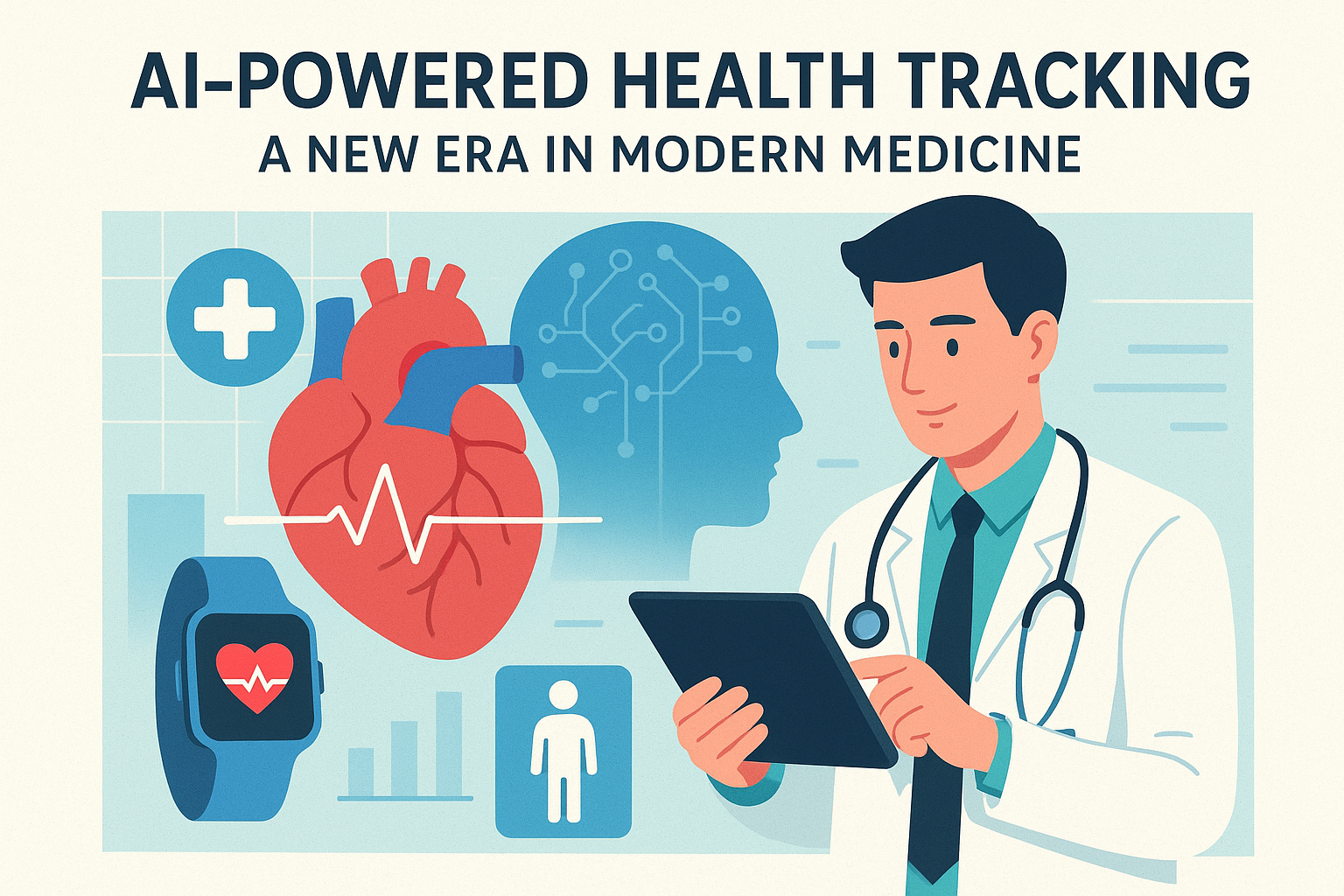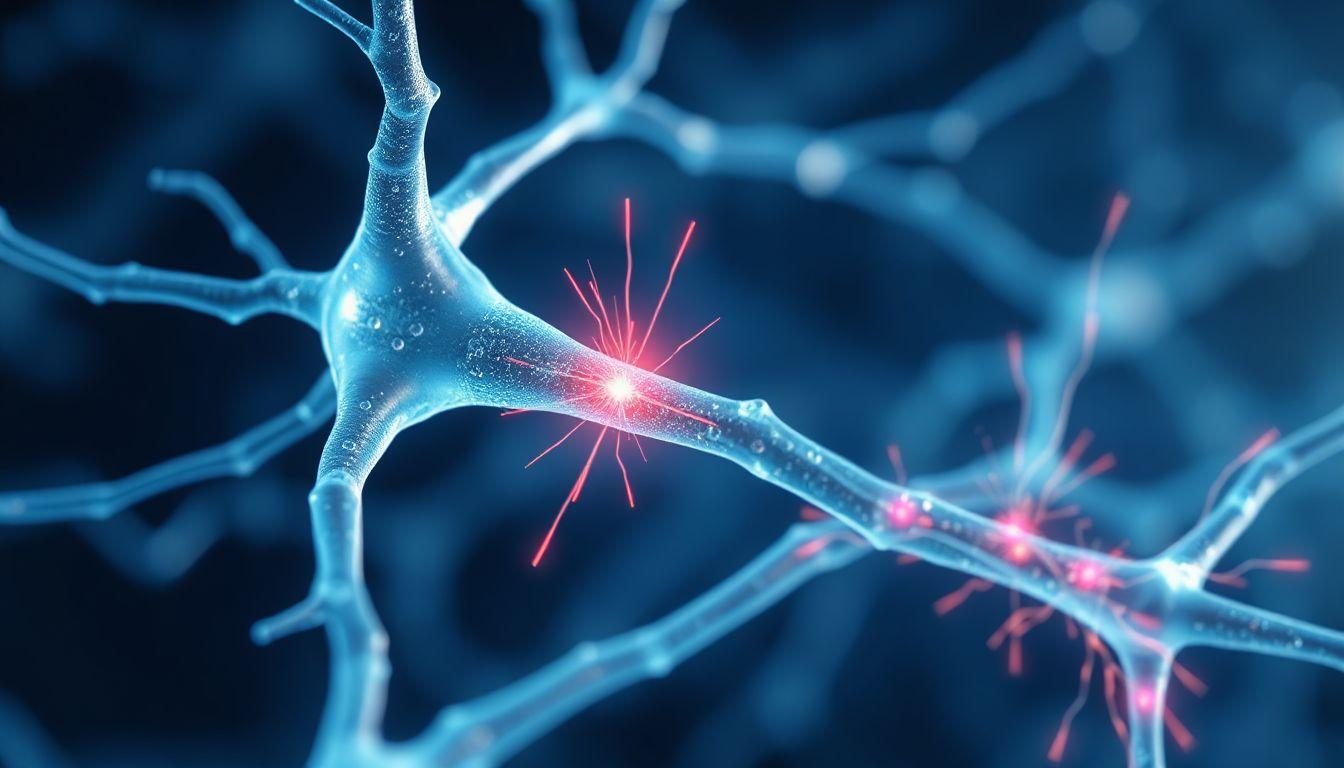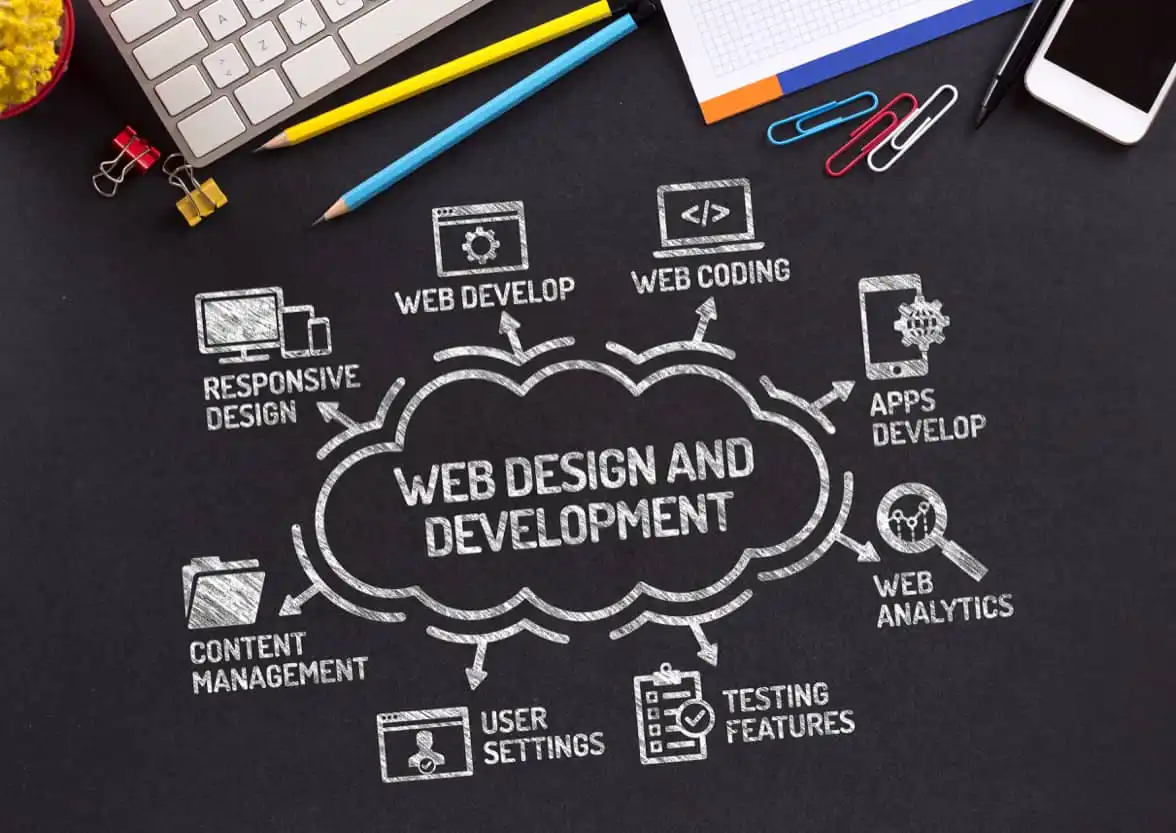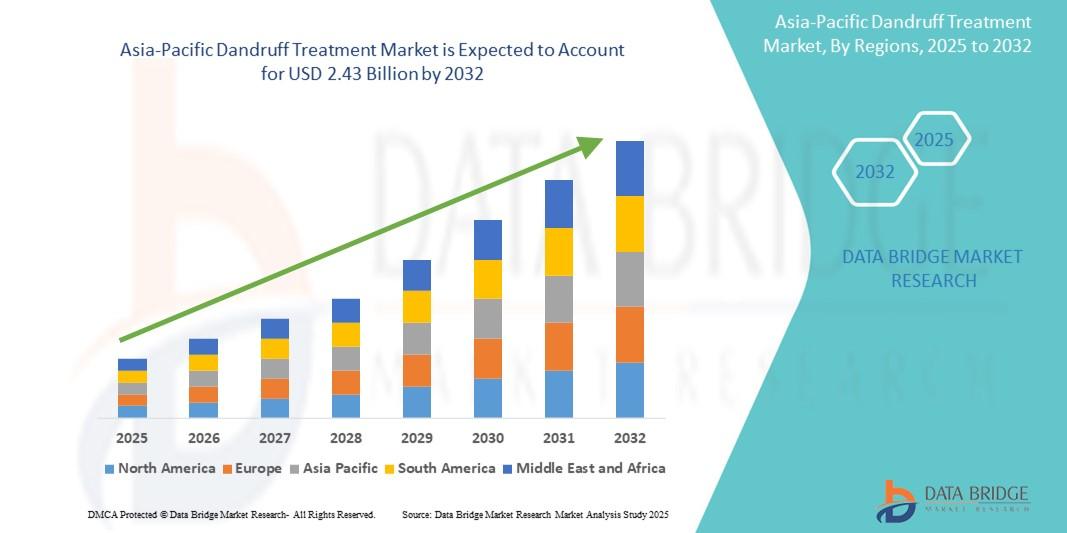AI-Powered Health Tracking: A New Era in Modern Medicine

Imagine a situation where your healthcare assistant is dedicated to you and works 24/7, constantly monitoring your body's vital signs and alerting you to any potential problems before they become serious, all without requiring a visit to the clinic. This is what the new health tracking that AI brings.
Combining artificial intelligence with high-end medical equipment and smart applications has revolutionized the way we understand medicine and the quality of treatment we get. This new era of medicine is characterised by smartness, speed, and personalization.
The change is not only about devices and numerals. It is about giving patients the power to monitor their health, and doctors, in turn, get vital and uninterrupted info for delivering efficient care. In this blog, we will explore the key technologies and applications of AI in health tracking.
What is AI-Powered Health Tracking?
AI-driven health monitoring is a system that uses artificial intelligence algorithms to analyze data, like heart rate, sleep quality, hydration level, body temperature, and physical condition, collected from wearables, mobile applications, and health gadgets, which helps to provide tailored insights to the user about his/her health and fitness.
How AI-Powered Health Tracking Works?
AI algorithms analyze complex health data patterns that would be impossible for humans to process. Machine learning models can detect subtle correlations among health metrics, environmental factors, and lifestyle choices; the very thing needed to provide personalized insights and early warnings.
The systems learn from an individual's baseline and also from population-wide health trends. When irregularities occur, an AI-powered health tracking platform can alert users and healthcare providers. The technology assesses data streams simultaneously, from blood level, glucose levels, and heart rate.
Key Technologies Behind AI Health Tracking
Wearable Devices
Devices such as smartwatches and fitness bands collect real-time health data such as body temperature, heart rate, water level, sleep quality, etc, and feed that data into the AI systems for further interpretation.
Mobile Health Apps
Mobile applications are integrated with health devices and hospital systems to provide individual health-related solutions.
Cloud-Based Data Processing
The large amount of patient data stored securely in the cloud allows AI algorithms to run complex analyses at a fast pace.
Machine Learning & Predictive Analytics
By recognizing patterns in past health data, AI can predict future health issues and suggest preventive measures.
Key Applications in Modern Medicine
Chronic Disease Management
Continuous AI monitoring changes the lives of patients suffering from diabetes, hypertension, and heart disease in a big way. This system can predict sudden spikes in blood sugar, monitor heartbeat, and the patient's drug regimen.
Mental Health Monitoring
An AI algorithm can monitor speech patterns, activity levels, and behavioral changes in an attempt to find signs of a potential mental health episode. The first signs of depression, anxiety, and bipolar disorders are sometimes so subtle that an AI-based health tracker may sense them much before traditional methods of assessment.
Remote Patient Monitoring
Using AI-powered tracking, healthcare providers keep an eye on patients who have undergone surgery, elderly individuals, and those suffering from complicated medical conditions to reduce hospital readmission rates and allow early intervention when health metrics suggest potential problems.
Preventive Healthcare and Risk Assessment
By analyzing long-term health data patterns, AI systems can discover risk factors for conditions like cardiovascular disease, sleep disorders, or mental health issues early. This ability to foresee conditions is a major step towards prevention-based medicine, which may vastly cut healthcare expenses and elevate patient outcomes.
Medicine Tracking
Medicine tracking is a technical system that helps keep a record of the drugs that a patient takes, the amount of drugs, and the compliance. The mechanism leads to the right and prompt intake of the drugs and reduces the probability that the patient will not get the dose, will consume more than the recommended dose, or experience the negative impact of drugs. Medication tracking through alert notifications, refill monitoring, and trend analysis allows patients to stay in good health.
Cost-Effectiveness and Accessibility
AI-powered health tracking has the potential to bring down medical expenses considerably. In essence, the utilization of AI-powered systems for regular health metrics monitoring and pre-symptomatic identification of diseases shifts the focus of healthcare from reactive to preventive routine.
Moreover, people having chronic diseases, which are caused by conditions such as diabetes, heart disease, or asthma, can administer themselves at home if supported by appropriate AI technology, hence the number of doctor visits will decrease, not the other way around.
Conclusion
Artificial intelligence health monitoring technology is more than just an impressive technical feat; it indicates a change in patient care and the entire healthcare system journey. Such tech as live monitoring, predictive analytics, and individualized health advice not only make the doctors and patients co-travelers on the road to achieving the best outcome. The application of this AI technology in the healthcare sector has significantly impacted the entire process, which has been made cheaper and more accessible, starting from the treatment of various diseases and continuous preventive care.
Smart, rapid, and efficient healthcare solutions are increasingly needed, which is why it is so important to have a strong partnership with a healthcare software development company that is up to the task. It can be such a partner that is capable of devising and implementing AI-based health tracking solutions that are customized to your particular requirements, thus ensuring security, conformity, and the ease of upgrading.








